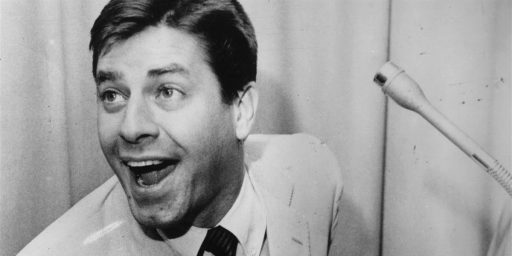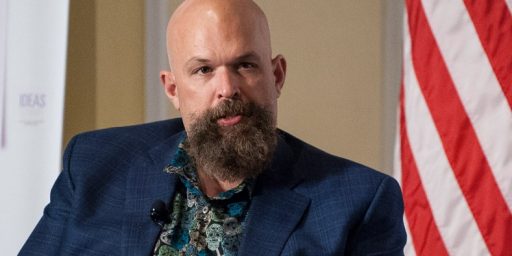Jack Valenti Dies at 85
Jack Valenti, who singlehandedly revolutionized the movie business, died yesterday.

Jack Valenti, who became a confidant of President Lyndon B. Johnson and then a Hollywood institution, leading the Motion Picture Association of America and conceiving of a voluntary film-rating system that gave new meaning to letters like G, R and X, died [Thursday] in his home in Washington. He was 85. The cause was complications of a recent stroke, his family said.
For 38 years, Mr. Valenti was the public face of the movie and television production industry and one of its fiercest advocates. He lobbied Congress to protect filmmakers’ intellectual property from piracy and to ease trade barriers overseas. And he fended off lawmakers’ recurring campaigns to curb violence and sex on the screen, arguing for free expression. He devised the film-rating system precisely to avoid censorship by local review boards.
[…]As a Houston political consultant, he was in the motorcade when President John F. Kennedy was shot on Nov. 22, 1963, and he watched as Johnson was sworn in beside Jacqueline Kennedy aboard Air Force One.
Mr. Valenti soon became known, and for a time mocked, for his unfailing loyalty to Johnson, if not outright idolatry of him. “I sleep each night a little better, a little more confidently because Lyndon Johnson is my president,” he once said in Boston, inviting guffaws nationwide. Even after leaving a senior post at the White House in 1966, Mr. Valenti remained at Johnson’s service, secretly arranging the president’s surprise detour to the Vatican to meet with Pope Paul VI on the way back from Vietnam in December 1967.
[…]
In 1966 Mr. Valenti took his talents for personal politicking — and lionizing his bosses — to Hollywood, heeding the request of Lew Wasserman and Arthur Krim, then chairmen of MCA/Universal and United Artists respectively, that he take over the Motion Picture Association. “If Hollywood is Mount Olympus,” Mr. Valenti once said of his new liege, “Lew Wasserman is Zeus.”
At the time Hollywood was still officially operating under the Hays Production Code, the industry’s draconian and increasingly outmoded self-censoring rules that flatly barred nudity, profanity, miscegenation and even childbirth scenes from being depicted on film. Mr. Valenti was soon confronted with two films in 1966 that convinced him that the code had become obsolete. He dealt with one, “Who’s Afraid of Virginia Woolf?,” by negotiating a compromise in which three out of four particular vulgarisms were cut.
Later that year, M.G.M. released Antonioni’s “Blowup” even though that film, showing brief scenes of nudity, lacked Production Code approval. Sensing that other films would also begin flouting the code and in turn create a vacuum into which local politicians and censorship boards might rush, Mr. Valenti decided to act. “I knew I had to move swiftly, and I did,” he later recalled. “I was determined to free the screen from anything like the Hays Code. But I also emphasized that freedom demanded responsibility.” So by late 1968 he persuaded the national theater-owners association to buy into a system of voluntary ratings, based on an ascending scale of adult content, that would be enforced at the box office: G, M (later PG), R and X.
The system was not without flaws and detractors, and it required some tinkering. In 1984, after receiving complaints about frightening parts of PG-rated movies (“parental guidance suggested”) like “Gremlins,” the association added the PG-13 category (“parents strongly cautioned”). Though the other ratings were trademarked, the X was not, and pornographers quickly co-opted it. In 1990 the association replaced the X with NC-17 (no one 17 and under admitted), hoping it would be embraced, but distributors have mostly spurned it for commercial reasons, leaving many filmmakers to make wrenching cuts to adult-themed films in pursuit of an R rating.
An amazing life. That he was so controversial is a sign that he was both interesting and at the cutting edge of so many key debates.
While I’m not a fan of self-censorship, preferring to let the market decide what’s “appropriate,” the rating system is far preferable to the government censorship that would have filled the vacuum otherwise. Ironically, though, changing standards of decency have rendered the system almost meaningless in recent years, as there is now plenty of profanity and rather graphic violence even at the “PG” level, while otherwise innocuous films get an “R” rating if they use a certain ubiquitous swear word.
Photo via DECLAN MCCULLAGH PHOTOGRAPHY
Crosspost from Gone Hollywood






Valenti must also be remembered as one of the originators of criminalizing one’s own customers.